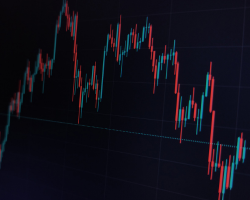Money Management in Forex Trading: Strategies and Rules for 2023

According to the statistics, not more than 10% of traders manage to become profitable on the long-term horizon and practically 90% of traders do not use any definite strategy in managing their funds.
These figures mean that modern traders lack experience and few of the majority think about what money management is, which eventually leads to the loss of the invested funds in the long term.
The economists along with other traders, scientists, and financiers urge all investors not to forget how important money management is in trading.
A trader must be very disciplined, understand the trends of the stock market and follow the principles of money management. So, that is what we are going to talk about today.
What is Money Management?
Money management is a set of rules for money management. It is understood as a number of principles and a system of allocation of funds intended for investment. The purpose is to minimize the risks of losing all the trader's money.
It is a set of actions for managing money (capital) which includes using tools and strategies for saving and increasing assets.
Many people think that this is a trading strategy, but in fact, money management does not help to earn money directly, it helps not to lose it.
Johann Bernoulli, a mathematician, is considered to be a founder of money management; he wrote in his works in the first half of the XIII century about the "theory of expected utility". He wrote, that "...to estimate risk degree of all strategy (set of factors) one must determine the average of possible outcome of each of them".
This theory was developed in the works of mathematician J. Neumann, and various economists.
The main idea is to achieve a smooth increase in investment while aiming for the lowest possible losses.
Money management theory cannot guarantee that an investor will always have successful trades, but following it will help minimize losses from unprofitable operations.
Why Do We Need Money Management?
Trader's profession depends a lot on psychology, very often people lose control when they see an opportunity to make super profits.
Asset management planning is the basis of every trading day. Many investors admit that they work on increasing their capital in the long run, but at the same time, they can suffer a loss of all their capital in a single day. How is this possible? Why can investors suddenly lose all of their profits from investments made over several months?
The answer is usually the same: "I had the worst period, my profits were lower than usual, so I took more risk by opening new positions. This led to more losses."
It is up to you to behave rationally in times of uncertainty so that you do not take unnecessary risks. At such times, every investor should try to limit their losses, not increase them.
Experienced traders know how to deal with losses and how not to increase them. This is the goal of money management. It sounds very simple, but every trader will face this problem if they do not define their money management rules from the beginning.
Money management will keep you afloat even if you make the wrong decision during unfavorable market times. It will not increase your profits but it will limit your losses.
Basic Rules of Money Management

One of the first money management strategists in stock trading is considered to be Jesse Livermore, a genius trader who earned millions in the early XX century. His investment strategy allowed him to make a fortune in the stock market crashes of 1907 and 1929.
He developed a few simple rules which, when followed, can help any trader trade at a profit.
Among the most important ones are:
-
You can't put all of your money into one trade at once. It is better to open several different trades or save money for averaging your positions. It will be psychologically easier to exit a losing trade if the market will fall. Jesse Livermore himself invested no more than 10% of his capital in a trade;
-
To allow the profit to reach its maximum, that is to have enough patience to allow the open positions to show a significant profit;
-
Fix profit in time. The great trader believed that it is necessary to cash no less than 50% of the profit from each major trade, but modern traders believe that everyone must set their own threshold.
As long as an investor uses their equity (deposit) as a working tool, money management plays an important role in trading. Proper money management on forex or other markets is as essential as proper strategy implementation. All rules and principles of money management can be divided into three groups.
Asset Management
Asset management rules determine what funds can be withdrawn from your account and how much of the profits should be left for future trading. Management allows you to set specific goals for your available funds. The size of the deposit serves as an indicator to help the trader understand when to apply certain methods; here, the trader defines certain income levels, which they plan to use as key points in trading.
Let's say a trader started working with an amount of $500. According to the management strategy, as soon as the deposit amount reaches $1000, the trader withdraws the profit to open a separate account or trade using a different strategy.
Determining Trading Volume
This part of money management is combined with risk management. The investor must compare the size of the trade with the size of the deposit to maximize profits and avoid serious losses in case of failure.
Remember that losing while trading financial markets is a normal process. Even in the moments when a trader uses their strategy most effectively, some positions may cause losses. For a succession of losing trades not to eat your deposit, its size should be enough for 30-40 trades, not 5-6. Then the theory of probability will be on your side.
Trading Limitations
Based on the individual approach, the trader creates a set of rules to smooth out the negative consequences of strategy shortcomings.
Such rules include:
- If there are 4-5 losing trades in a row, no more trades should be made on that day;
- Stopping trading for two or three weeks, if during the current month the deposit decreases by more than 15-20%;
- A trader must stop placing orders if daily profit is 2-5%;
- Opening no more than 2-5 trades in one day.
Money Management Strategies
Beginning investors often use an averaging strategy. This strategy consists of increasing the proportion of your position (whatever you trade: stocks, currencies, CFDs) as the asset price falls. This method lowers the average purchase price.
The effectiveness of this method can best be told by those whose money ran out before the decline. This method of investing is especially popular with investors who use fundamental analysis (although technical analysts don't shy away from it either). It comes from a simple assumption: if I have made a valuation of an asset and believe it is undervalued, then every drop in price increases the undervaluation and therefore the attractiveness of the investment.

Of course, this goes against the basic investment principle of "cut your losses quickly." Unfortunately, averaging the price because the commodity is unprofitable has many proponents.
At a glance, you can see that its main drawback is that at some point we may be out of money and the asset price may keep falling. In the futures market, this approach is one of the easiest ways to reset your account, if only because of the need to constantly add money to your deposit.
In the forex market, this method has no risk limits at all because the price theoretically has no limit on value, unlike the stock market where the value cannot fall below zero.
It is better to apply the fixed cost strategy, which is a management method based on the reduction of the average price.
The fixed cost method involves systematically (e.g., monthly) buying an asset (stocks) for a certain amount. Because of this, when stock prices are high, we will buy them relatively little, when they are low, we will also buy them.
Top Money Management Tips for Forex Traders
You should move from general information to specific tips and pay attention to what mistakes in money management should be avoided and what you should pay attention to. You can use these points as elements of a money management strategy.
- Set a maximum loss per trade. This can be 5% of your total capital. For many beginners, a lower figure, usually 2%, is more acceptable.
- Do not open large positions relative to the size of your account. You can't put all your eggs in one basket. Even if you profit from a position, don't increase it to the detriment of your free capital %.
- A suitable solution is to diversify your investment portfolio. You must consider the ratio of positions. By properly distributing positions in the portfolio, you should not be threatened by correlations on unprofitable positions.
- Emotions arising from open positions should not influence your decisions. Euphoria and uncertainty should not lead to irrational decisions. You do not need to open a new position at all costs. If you are not sure that the current market situation is appropriate to enter the market according to your strategy, wait for the next clear opportunity.
- Just because you do not have an open position does not mean that you will not gain anything. On the contrary, by doing so you avoid losses as a result of unexpected (negative) market movements. Being out of a position is also, in a sense, a position.
- Pay attention to too much activity. Especially during periods when the market is slow and stagnant, traders are often susceptible to emotion and want to open positions that don't fit their strategy.
- Patiently wait for real trades with high profitability potential and wisely monitor all changes in the market.
- Be aware of the risks and possible profitability of a position before you open it. Verify that you can carry the risk and if it is worth the risk to take the profit.
- Use Stop Loss to limit your maximum loss.
- Set a maximum loss per day for the need to suspend trading (e.g. 5% of your total capital). This action will prevent a large loss in one session. Sometimes you just need time to take a break.
- Have sufficient capital at your disposal. You should know that some capital will be blocked for long-term positions. Remember the point from the previous list about the size of your open positions.
- In times of uncertainty (market volatility) trade less. This is where less is more. Do not try to compensate for losses by opening more positions, you will lose even more.
- Close loss-making positions the fastest, and hold the longest profitable positions. In the case of losses do not wait for the market to turn around.
- Prepare a plan in advance. Make positive scenarios for it, so you avoid opening new positions in euphoria, that do not fit your strategy.
- Be disciplined, and stick to a pre-established plan. Don't give up on it, especially important during periods of failure. Discipline is one of the most important factors in a trader's success.
Conclusion
Even with excellent analytical flair and a perfectly working strategy, a trader can lose the whole capital if there is no risk control.
Money management is an investor's key to gaining stability and professionalism in trading the market. The fact that most investors do not follow any money management strategy makes its use even more important and urgent, because discipline and calculation even in the most difficult crisis moments will help to stand firm or come out as a winner while the rest of the market will count losses.
About AdroFx
Established in 2018, AdroFx is known for its high technology and its ability to deliver high-quality brokerage services in more than 200 countries around the world. AdroFx makes every effort to keep its customers satisfied and to meet all the trading needs of any trader. With the five types of trading accounts, we have all it takes to fit any traders` needs and styles. The company provides access to 115+ trading instruments, including currencies, metals, stocks, and cryptocurrencies, which make it possible to make the most out of trading on the financial markets. Considering all the above, AdroFx is the perfect variant for anyone who doesn't settle for less than the best.










